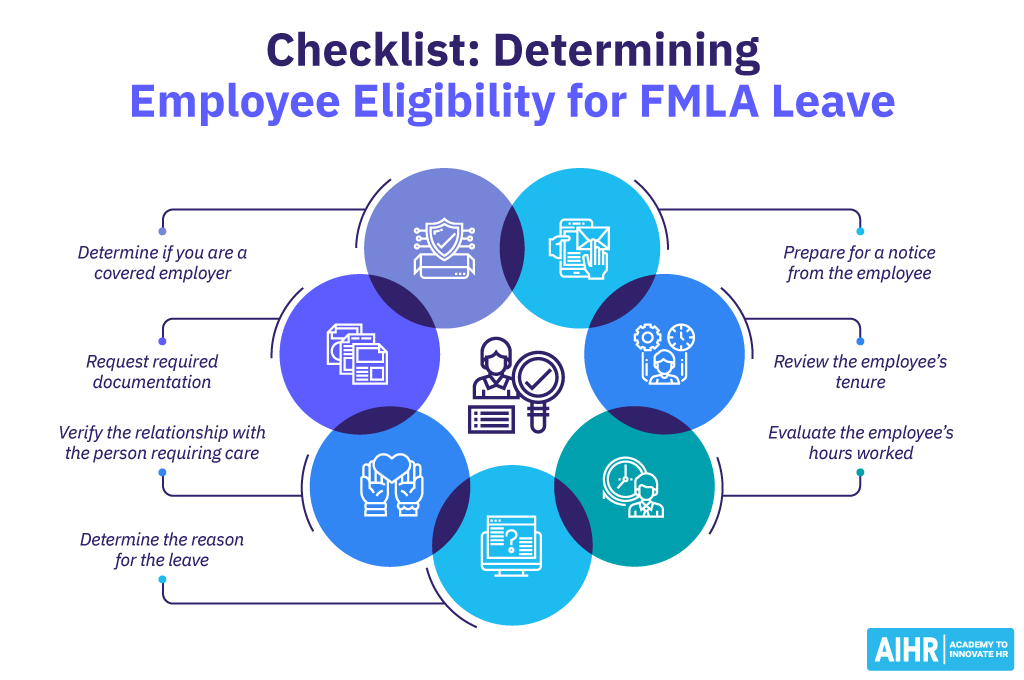FMLA Paperwork: Who Handles It?

When navigating the complexities of family and medical leave, understanding the FMLA (Family and Medical Leave Act) paperwork is crucial. Employees often find themselves asking, "Who handles FMLA paperwork?" The answer isn't straightforward as it involves multiple stakeholders. This post aims to clarify the roles of each party involved in the FMLA paperwork process, ensuring both employees and employers know their responsibilities and rights.
The Employee’s Role in FMLA Paperwork

Employees are generally the initiators when it comes to FMLA paperwork:
- Notice of Leave: Employees must provide notice of their need for FMLA leave to their employer. This should be as soon as practical, whether it’s foreseeable or an emergency.
- Medical Certification: If the leave is for a medical condition, employees must obtain and provide medical certification from a healthcare provider.
- Supporting Documents: Occasionally, other supporting documents like birth certificates or adoption papers might be required to establish eligibility for leave.
🌟 Note: It’s beneficial for employees to communicate openly and in advance when possible to facilitate a smooth FMLA process.
Employer Responsibilities in FMLA Paperwork

Employers have several responsibilities under the FMLA:
- Providing Information: Employers must inform employees of their FMLA rights, including eligibility and the process to request leave.
- Designation Notice: Once a leave request is received, the employer must provide a designation notice within 5 business days indicating whether the leave will be FMLA-protected.
- Record Keeping: Employers are required to keep all FMLA records for three years, ensuring compliance with the act.
| Action | Timeframe |
|---|---|
| Employee Notice | 30 days notice for foreseeable leave |
| Medical Certification | Within 15 calendar days of request |
| Designation Notice | 5 business days after leave notice |

Healthcare Provider’s Role

Healthcare providers play a pivotal role in validating the need for FMLA leave:
- Completing Medical Certification: They must fill out and sign the Certification of Health Care Provider form, detailing the medical condition and the probable duration of leave required.
- Communicating with Employers: While maintaining patient confidentiality, providers can communicate with the employer if necessary, especially in cases where further information is needed.
👩⚕️ Note: Healthcare providers should familiarize themselves with FMLA forms to expedite the process, ensuring their patients receive necessary support promptly.
The Role of Human Resources

HR departments are instrumental in:
- Processing Paperwork: HR handles the receipt and processing of FMLA forms, ensuring timely action is taken.
- Tracking Leave: They track the amount of leave used and coordinate with employees on return-to-work arrangements.
- Compliance and Guidance: HR provides guidance to both employees and management on FMLA compliance and any related policies.
Legal and Compliance Teams

While not always directly involved, legal and compliance teams can play a role in:
- Advising on Compliance: They ensure the company’s FMLA policies are up to date and compliant with current regulations.
- Handling Disputes: In cases where there are disputes or issues with FMLA leave, legal teams can provide counsel or represent the company.
Understanding the roles each party plays in the FMLA paperwork process is vital for the successful management of leave. Employees need to communicate effectively, employers must respond promptly, and healthcare providers should provide clear and concise certifications. HR acts as the central hub to ensure all parties work together seamlessly.
By fostering open communication and maintaining thorough documentation, both employees and employers can navigate the FMLA leave process with confidence, minimizing potential stress and ensuring that all rights and obligations under the law are met.
In sum, everyone involved in the FMLA process, from employees to legal advisors, has specific duties to uphold to make the leave process as smooth as possible. Awareness and proactive engagement are key to ensuring that the process respects the spirit of the FMLA, providing the necessary support for family and medical needs while maintaining business continuity.
What happens if an employee fails to provide timely FMLA paperwork?

+
If an employee does not provide required documentation within 15 calendar days after the request, their leave might not be FMLA-protected. However, exceptions can be made if the delay is justified or if the employee is incapacitated.
Can an employer deny FMLA leave if paperwork is incomplete?

+
An employer can delay or deny FMLA leave if the paperwork is incomplete or inaccurate, but they must provide notice to the employee, giving them the opportunity to rectify the situation.
Who keeps the FMLA certification forms?

+
The employer retains the original medical certification form in the employee’s HR file, ensuring confidentiality while meeting legal record-keeping requirements.